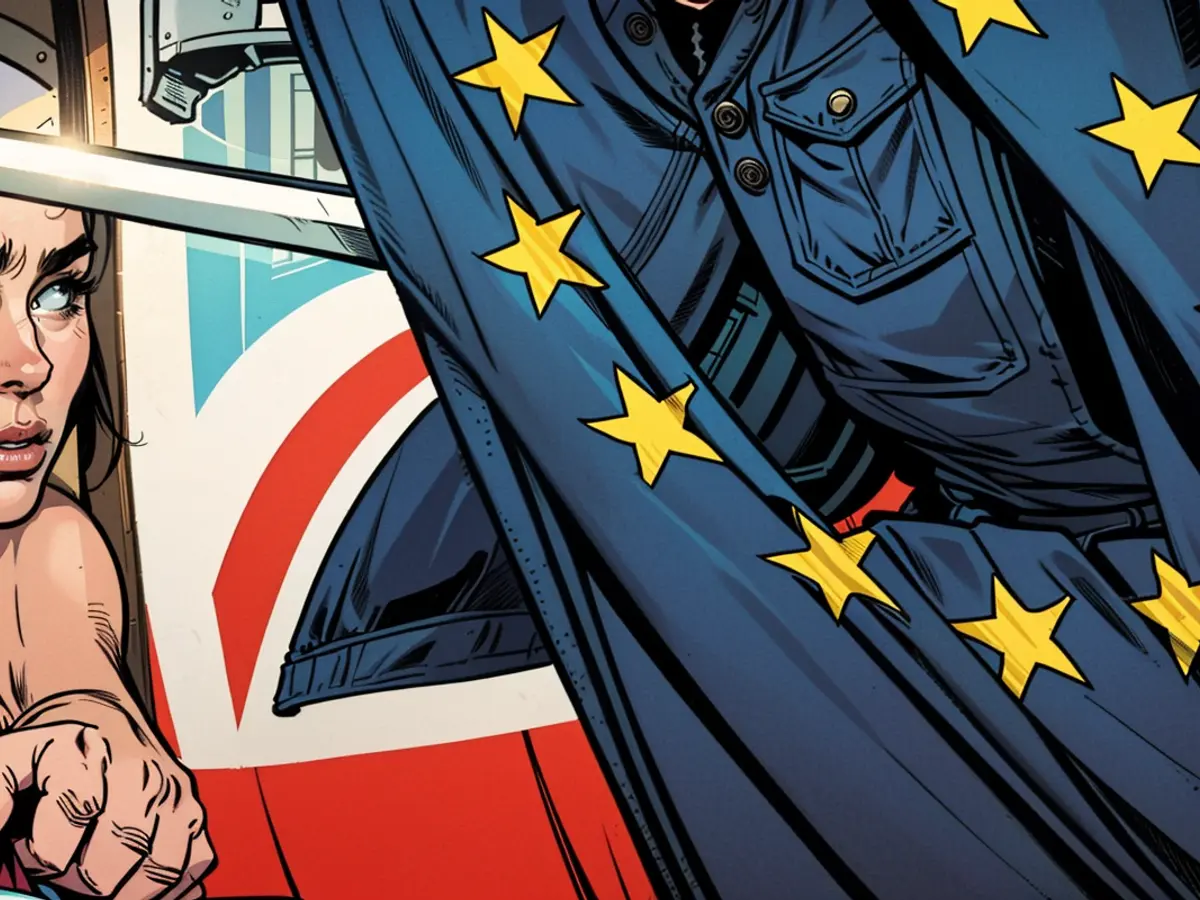Election in Great Britain - German economy: No Brexit loosening after election
After the expected victory of the Labour Party in the British Parliament election, the German-British economy hopes for approaching and easements in bilateral trade. However, experts do not reckon a return of the United Kingdom to the EU Single Market and the Customs Union.
"Instead, it seems more likely that a Labour government intends to improve existing relationships and strengthen economic ties, without reversing the fundamental Brexit decisions," said York-Alexander von Massenbach from the British Chamber of Commerce in Germany (BCCG) to the German Press Agency. He referred to Labour leader Keir Starmer, who is likely to be the new Prime Minister, who has always emphasized respecting the Brexit referendum and not seeking re-entry into the EU.
Britain is electing a new parliament on Thursday. According to surveys, Labour is steering towards a clear majority. Britain left the EU at the end of January 2020 and has not been a member of the Customs Union and the Single Market since 2021. Despite a free trade agreement, there have been problems in trade exchange since then.
Small steps, no big throw
The CEO of the German-British Industry and Trade Chamber (AHK) in London, Ulrich Hoppe, expects an agreement on rules for trading in phytosanitary products, i.e. animal origin goods. "That's a small step that's politically important," Hoppe told dpa. Chemical products could also orientate themselves towards the European regulatory framework for new regulation. "But I don't see the big leap for a real close approach coming in the next few years," Hoppe added.
The Association of German Industry UK (GIUK) hopes for less bureaucracy. "The abolition of forms for export and import, the hiring of EU employees, and the recognition of EU qualifications are necessary steps in the context of closer cooperation with the EU," said GIUK chairman Bernd Atenstedt.
Labour is too cautious
BCCG board member von Massenbach considers short-term security policy cooperation and easements for work permits for young people to be the most likely approach. A starting point, in his opinion, is the 2026 scheduled revision of the free trade agreement, which still has many gaps. "It's still largely lacking regulations for the sector that is particularly important for Britain: the service sector," said a partner at the law firm GSK Stockmann. "A new joint trade and technology council, similar to that between the EU and the USA and the EU and India, could support the implementation of this agreement."
AHK CEO Hoppe is more skeptical. A British return to the Erasmus program or visa easements are desirable, but on the one hand, the new EU commission still needs to be found. On the other hand, Labour is too afraid to make major changes immediately, Hoppe said. "The EU wants more freedom of movement. That's something a future Labour government can't promise, given the high immigration numbers. That's politically too difficult."
- Ulrich Hoppe, the CEO of the AHK in London, is hoping for an agreement on trading rules for phytosanitary products, as a small step towards easing trade issues between Germany and Britain.
- Experts do not anticipate a return of the UK to the EU Single Market and Customs Union, despite the expected victory of the Labour Party in the parliamentary election.
- According to surveys, Labour is on track for a clear majority in the upcoming British parliamentary election, which took place on Thursday.
- Germany, along with the German Press Agency, is looking forward to approaching and easing bilateral trade with Britain, following the Labour Party's expected victory.
- Despite a free trade agreement, issues in trade exchange have persisted between the two countries since Britain left the EU and the Customs Union in 2021.
- Keir Starmer, who is expected to become the new Prime Minister, has always emphasized respecting the Brexit referendum and not seeking re-entry into the EU.
- The Association of German Industry UK (GIUK) is hoping for less bureaucracy as a necessary step in closer cooperation with the EU, following the election results.
- The German-British economy is hopeful for approaching and easing in bilateral trade after the outcome of the British parliamentary election, which some experts predict will lead to improved relationships and strengthened economic ties.
- A new joint trade and technology council could support the implementation of the free trade agreement between the EU and Britain, needed to address the gaps in the current agreement, particularly in the service sector.








